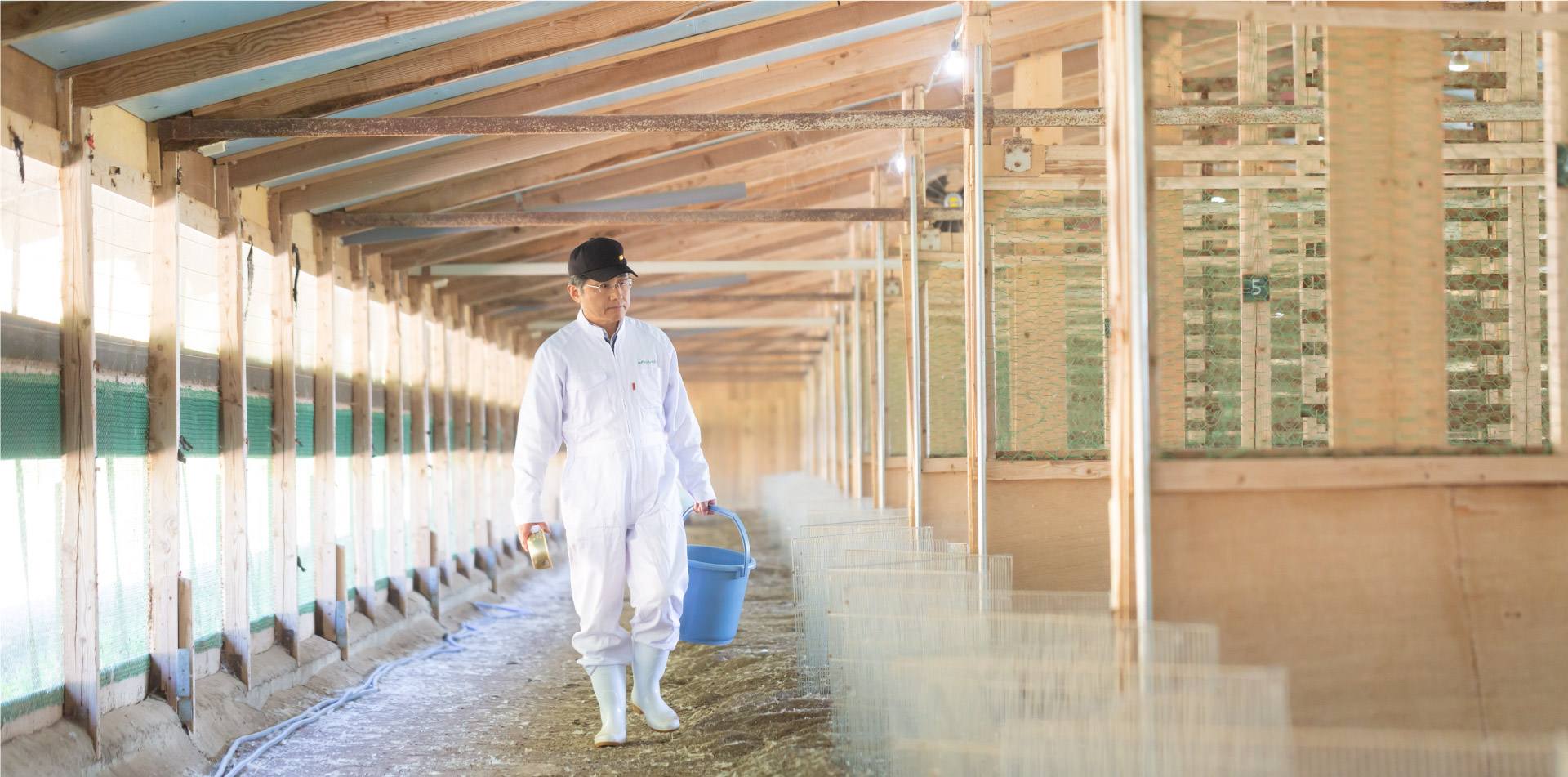

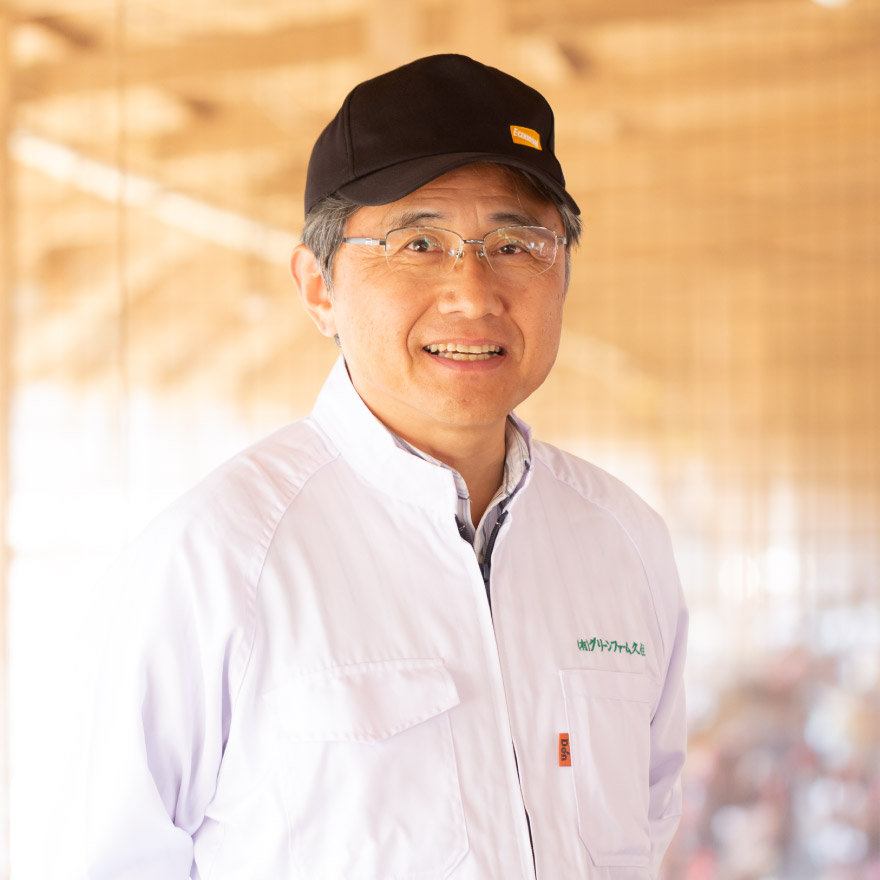
Thank you very much for visiting the greenfarm Kuju website.
I am Youichi Aramaki, the founder of greenfarm Kuju.
I was born into a family of poultry farmers and have dedicated the past 40 years of my life to this industry.
Here I would like to share some of my thoughts on the birds, on running a company, on our relation to the local community, and on other things that are close to my heart.
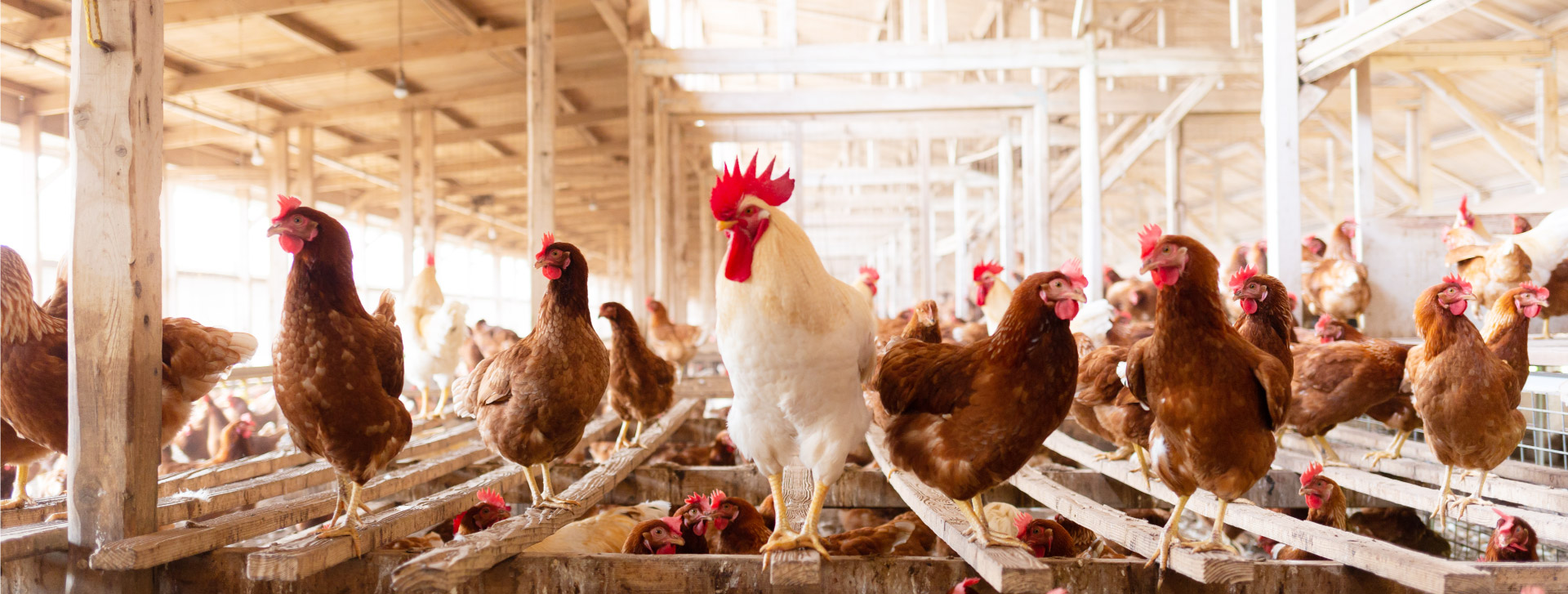
A Bird-Centered Farm
At the center of our farm are not people but birds.
We are always aware that our farm would not exist if it were not for the lives of these birds. We vigorously strive to give the birds an environment in which they can live healthy lives, from the day a chick hatches to the day she has laid her last egg. We see it as our prime responsibility to cherish the lives of these birds we deal with every day.
It is only thanks to the healthy, high-quality eggs the hens lay every day that we can rest assured of our livelihoods; and recommend the eggs to our customers with confidence. We try never to forget the relationship we have with the birds.
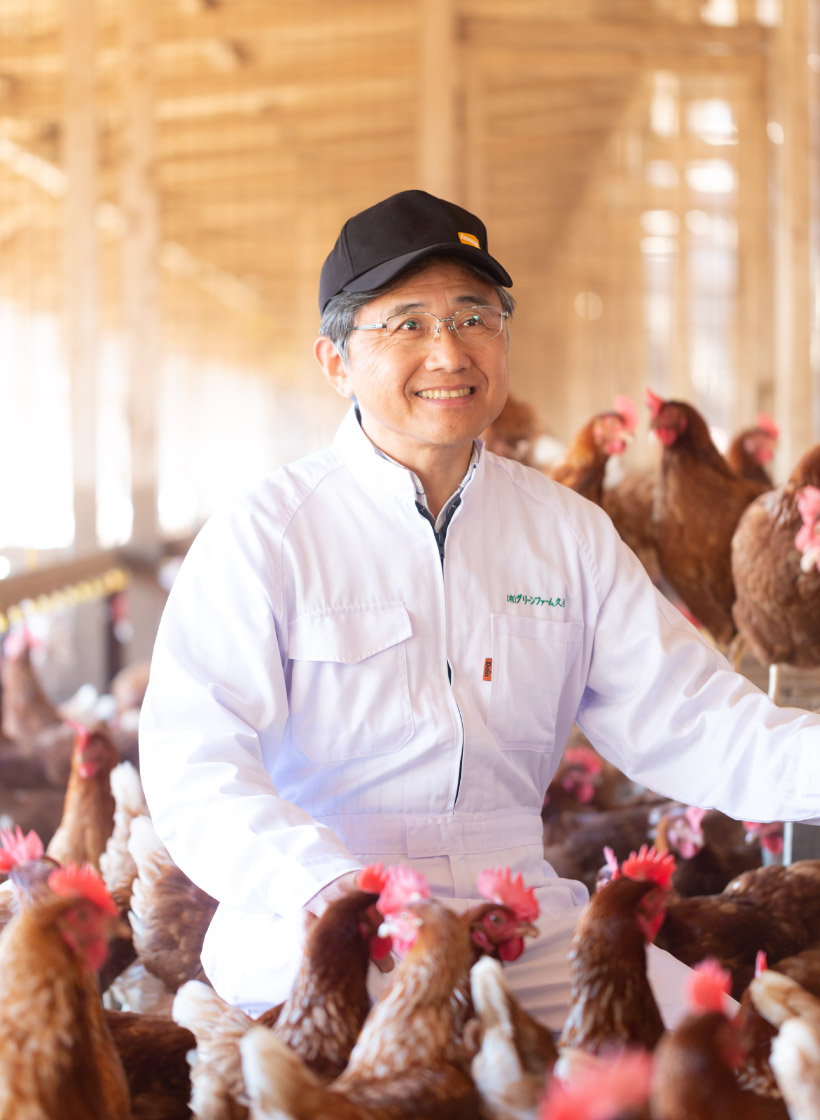
Believing in the Power of Chicken Feces
The key to creating an environment in which the birds can live healthy lives is the proper treatment of chicken feces.
At greenfarm Kuju, we practice cage-free farming, which means that the chicken droppings are naturally composted inside the poultry house, resulting in soil that is rich in nutrients and bacteria. Pecking at this soil allows the birds to stay healthy.
If you use a shovel to dig into the soil that forms the floor of our cage-free poultry farm, you will find that a layer of chicken manure goes down as deep as 50 cm. This thick layer protects the soil both from bad bacteria and, to some extent, changes in moisture, helping maintain an environment that is beneficial for the health of the birds. The composted chicken manure is light and dry and smells like humus, which is not a bad smell at all.
Ordinarily, poultry farmers remove chicken feces right away, but we believe in its power, and put it to good use to keep our birds healthy.
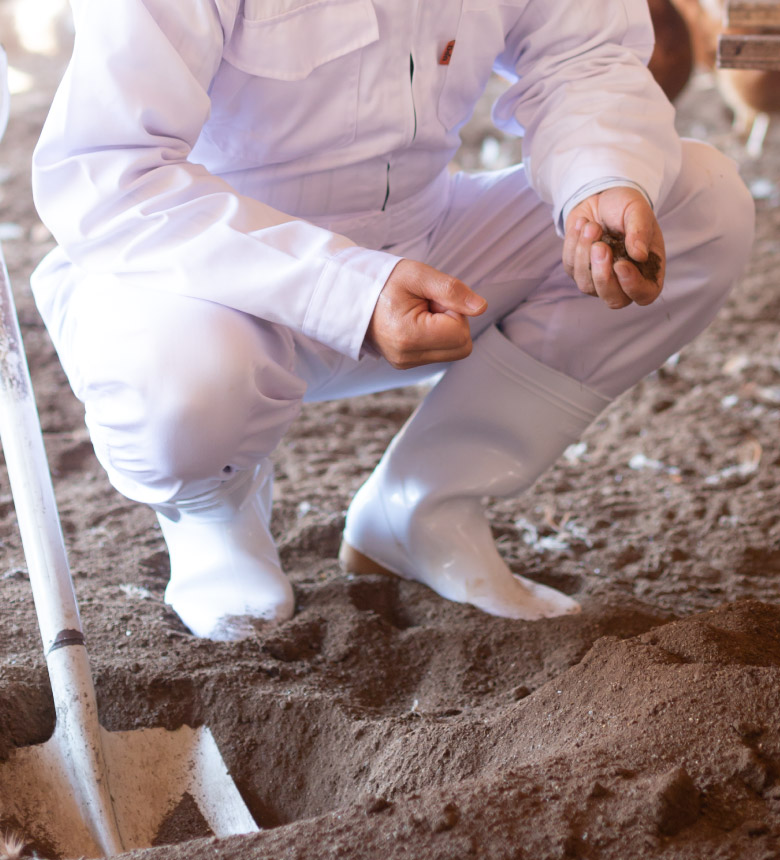
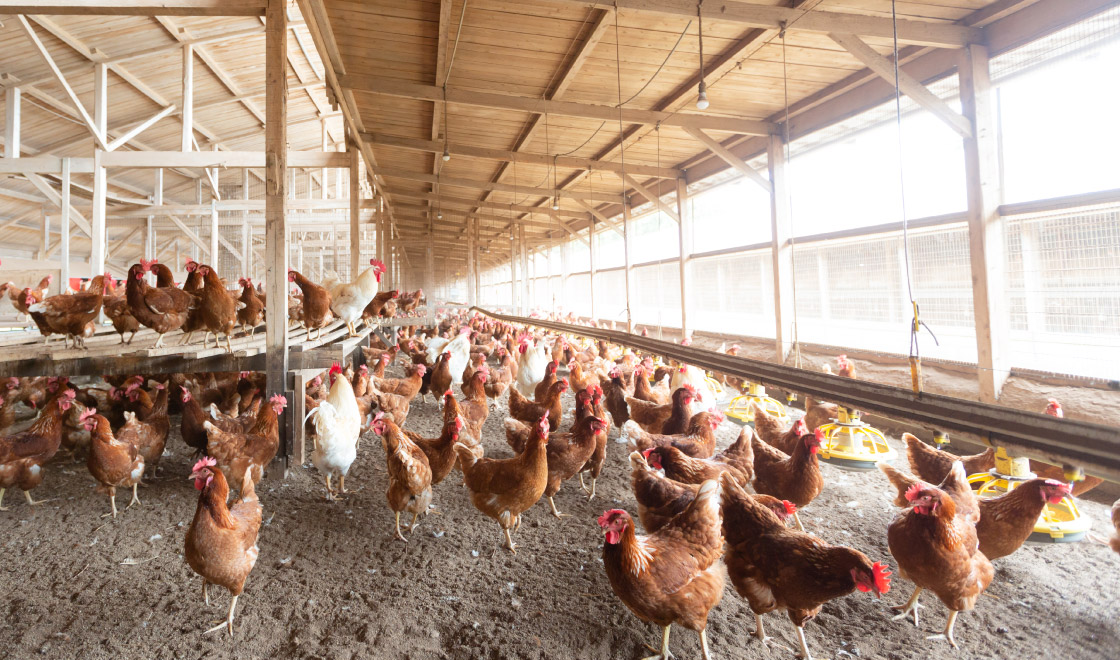
Creating an Environment that is Beneficial for the Birds, Nature, and People
Any system in which there is undue strain will, at some point, reach a limit.
This is true not just of machines and people, but also of other living beings and of Nature itself. There is always a ripple effect caused by any burden imposed on the system, and ultimately this results in a noticeable effect.
This is why at greenfarm Kuju we strive to create an environment in which the birds, our natural surroundings, the people working on our farm, our local community, and our customers can coexist in harmony and interact comfortably over the long term.
For instance, cage-free birds raised in healthy conditions do not contract diseases, so eliminating the need for the trouble or expense involved in treatment. Allowing the chicken droppings to be naturally composted in the soil simply returns the power of Nature back to the soil. This not only eliminates the need for disposal of fecal matter but also contributes to the good health of the birds. It does not smell bad either.
Work is important, but all our colleagues also have families and roles to play within the family and in the local community. We, therefore, adopt a flexible working system. Furthermore, to prepare for the future we have installed solar panels and contracted with a particular power company specifically so we can use renewable energy to meet 95% of the farm’s electrical power needs.
Our endeavors to create an environment that is good for the birds, for Nature, and for people make our farm a very stable business, helping create a system whereby we can successfully provide high-quality eggs to our customers on a regular basis.
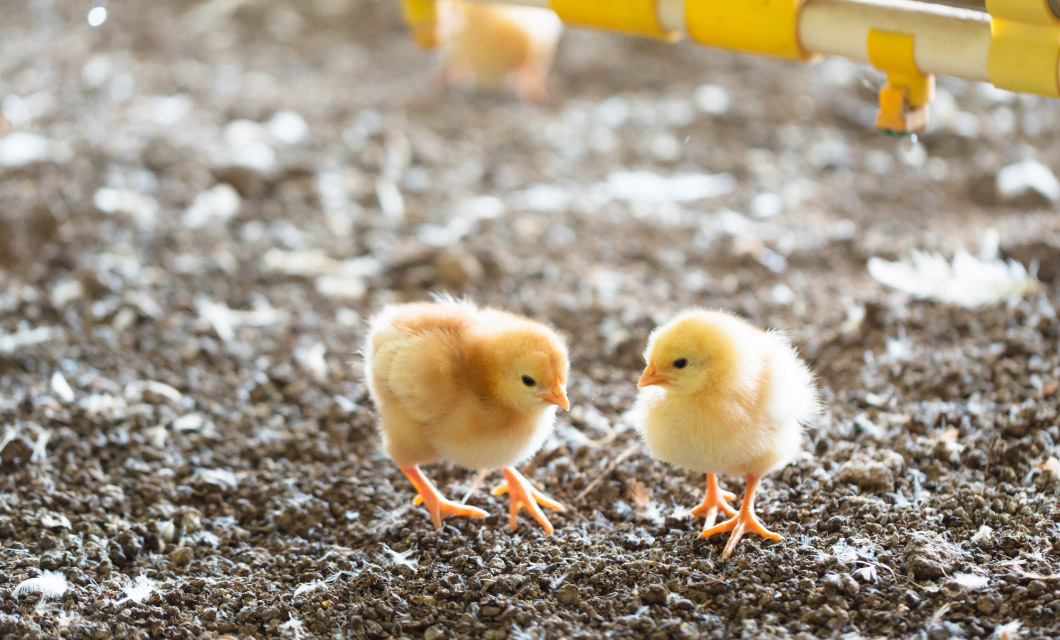
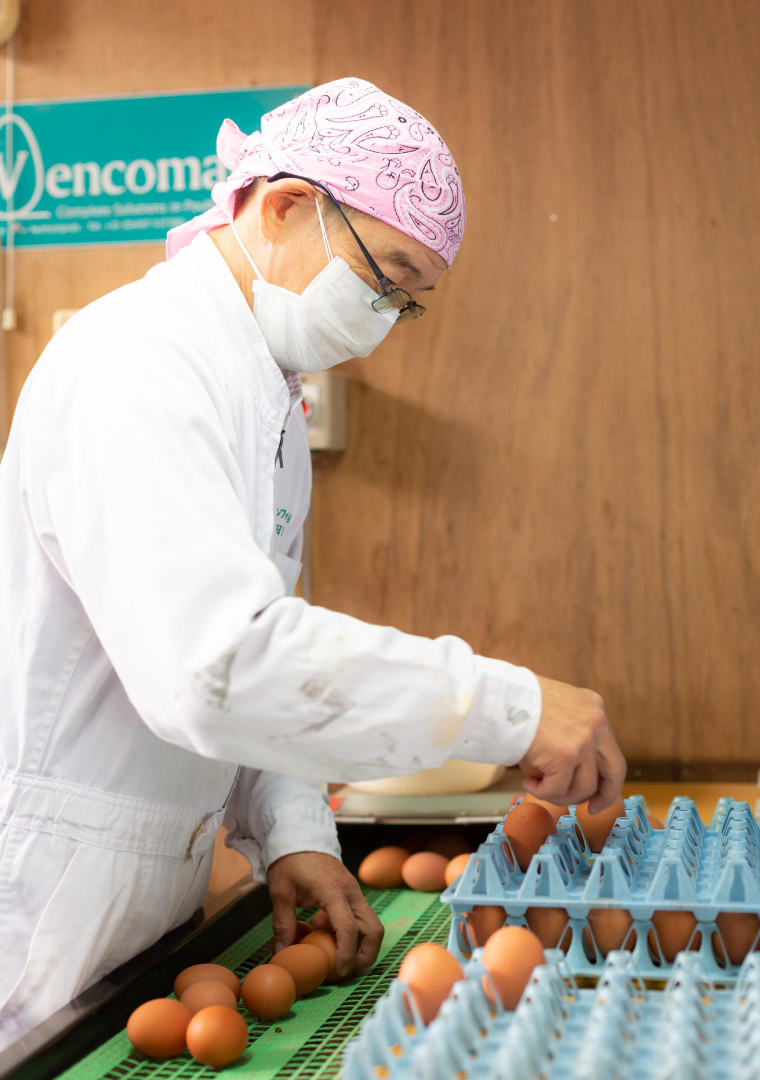
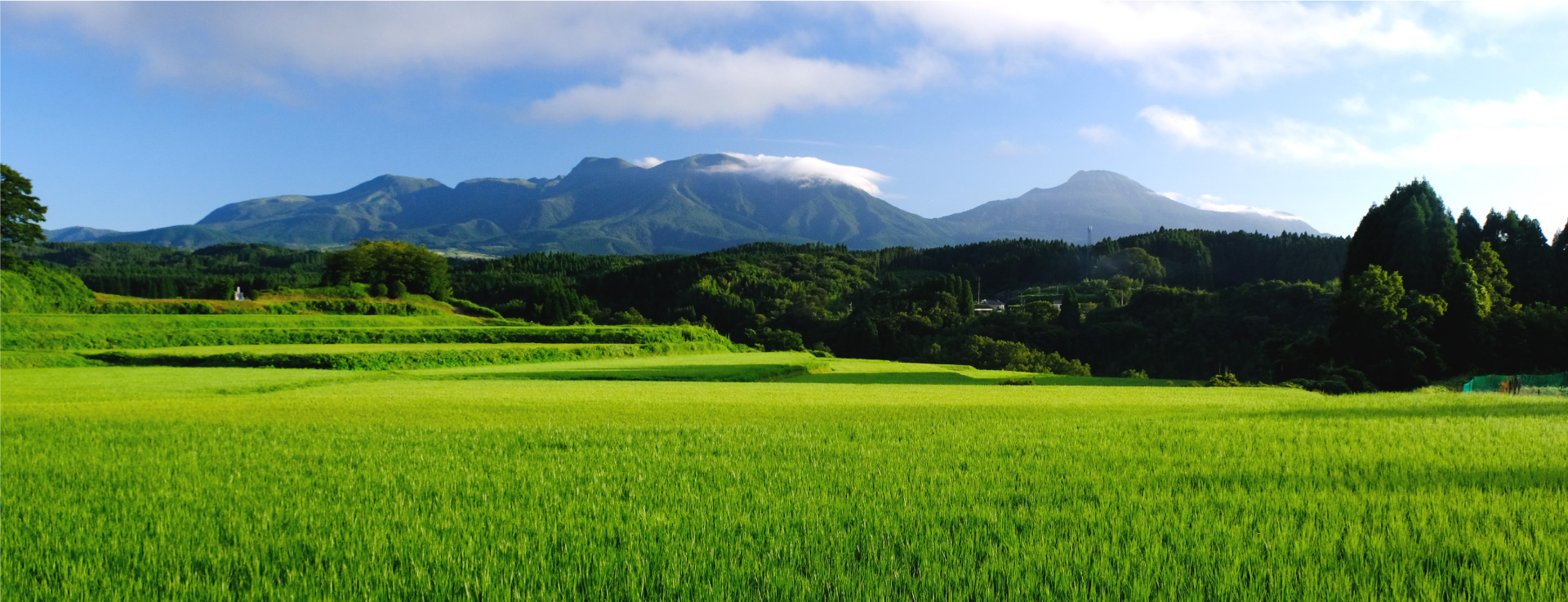
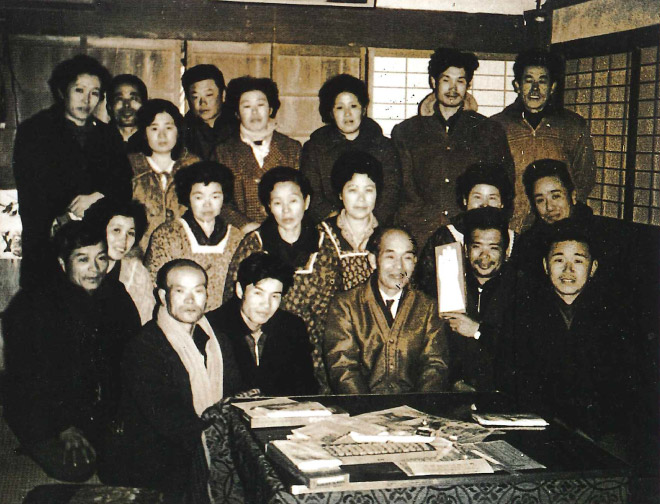
Coexisting with the Community
About 60 years ago, my father, Hikaru Aramaki, was the first to set up a poultry farming business in this area, Kuju, Oita Prefecture. At that time Japan was recovering from WWII, people in Kuju were still economically poor, and the main industry in the region was the cultivation of rice and wheat. It was against this backdrop that my father, along with 15 other local families, began a poultry farming business in an effort to develop an industry that would add value and contribute to revitalizing the region.
Out of a desire to prosper in conjunction with the region as a whole, the business was named Kyoei (meaning 'mutual prosperity') Poultry Farming Cooperative. Kyoei Poultry Farming Cooperative specializes in producing high-quality eggs through cage-free farming practices. Thanks to their excellent quality, these eggs have been contributing to Japanese industry as a raw material for influenza vaccines for human beings, rather than solely as eggs for consumption as food.
In 1992, in response to a request from a business partner to set up a contract farm, we drew upon the experience we had gained thus far to set up greenfarm Kuju as a new business corporation for the production of environmentally friendly eggs using safe and high-quality feed. The original philosophy of contributing to the local community has been inherited by greenfarm Kuju also, for instance, in the form of making a high-quality food ingredient available to the local community and in terms of providing stable long-term employment opportunities for members of the local community.
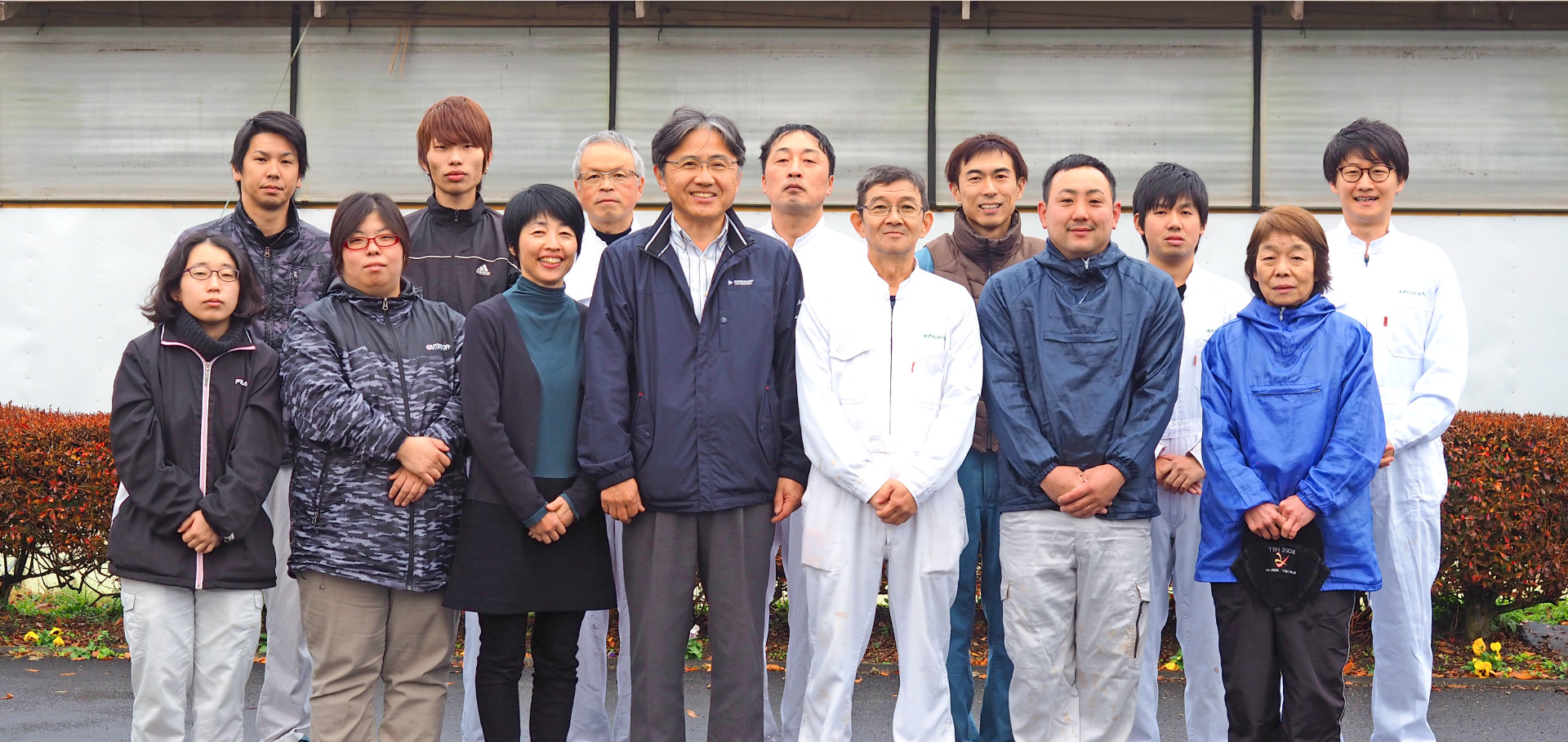
Our Promise
With the United Nations’ adoption of Sustainable Development Goals (SDGs), and the rise in consciousness regarding animal welfare and sustainability, we feel the time has come for methods we use to be of even greater use to society.
Japan is facing ageing and depopulation, trends that are even more marked in the countryside and in agricultural industries. Despite this, the average employee at our farm is in their 30s. We have been working to nurture future successors of the farm and we hope to continue our work as a company that aims to bring joy to the local community, to society at large, and to our customers as we rear our birds in an environmentally-friendly manner.
Thank you for patiently reading to the end!
